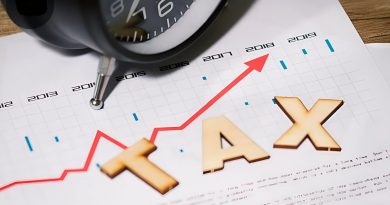Asian equity markets retreated Monday amid fresh uncertainty over US trade policy, while oil prices also slid as investors assessed the potential fallout of looming tariff hikes announced by the Biden administration.
US President Donald Trump said Sunday that several trade agreements were nearing completion and that Washington would notify trading partners of higher tariff rates by July 9. These rates are set to take effect on August 1, though questions remain about the final scope and scale of the tariffs.
Commerce Secretary Howard Lutnick clarified that the higher tariffs will come into force on August 1, while Trump is “setting the rates and the deals right now.” Originally unveiled in April, the plan calls for a base 10% tariff on most countries, with additional duties of up to 50%. The administration had delayed the effective date for most items until July 9, effectively offering countries an extra three weeks to negotiate.
US Treasury Secretary Scott Bessent said on Sunday that several major trade announcements could follow soon, citing “good progress” in talks with the European Union. Meanwhile, the White House plans to send letters to around 100 smaller trading partners, warning that they face higher tariffs if talks do not advance.
“There are deadlines, and there are things that are close, so maybe some will get pushed past the deadline,” said Kevin Hassett, head of the White House National Economic Council, signaling some flexibility for countries engaged in active negotiations.
Stephen Miran, chairman of the Council of Economic Advisers, highlighted ongoing talks with India and Europe, noting, “I hear good things… and so I would expect that a number of countries… might see their date rolled.”
Among the countries scrambling to secure deals, Thailand is offering broader market access and higher purchases of US farm goods, energy, and Boeing aircraft to avoid a 36% tariff, according to Finance Minister Pichai Chunhavajira.
Indian media also reported that Washington and New Delhi may finalise a mini trade deal within 24–48 hours, potentially locking in average tariffs of 10% on Indian exports to the US.
Bessent emphasised that 18 major trading partners account for 95% of America’s trade deficit, while accusing some of “foot-dragging.” Trump has separately expressed optimism about agreements with India and the EU but voiced doubts about a deal with Japan.
Hassett added that framework deals already reached with Britain and Vietnam provide a roadmap for other nations. Miran praised the Vietnam agreement as “fantastic,” describing it as heavily tilted in Washington’s favour.
The policy uncertainty has unsettled global markets, as investors weigh the risk of escalating trade tensions alongside shifting supply chains and production incentives aimed at boosting US domestic manufacturing.






